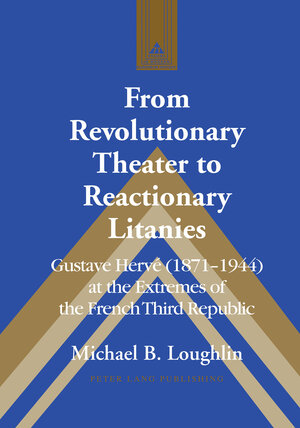
«Michael B. Loughlin’s work on Hervé demonstrates the nuances of current research on fascism which suggests that fascism derived from multiple sources and was far from monolithic, especially in France. Hervé tried out different ideas that were part of a shifting nexus of fascist ideological tenets and he seems to have shown up at different points on the fascist spectrum depending on the time and the issue. Following Hervé’s meandering demonstrates that the key question may not be whether or not he was fascist, but how inconsistent the influence of fascism could be. At the same time it shows how seductive aspects of it were to intellectuals of the day.» (
Samuel Huston Goodfellow
Westminster College, Fulton, Missouri
)
«It was a real eye-opener…to see how deep and intense the internal struggles within what I called the
enragé
element (the militant, anti-parliamentary left) really were, and how those divisions played out over the course of the Aernoult-Rousset Affair. [Michael B. Loughlin’s] description of the Aernoult funeral obsequies is vivid…and in fact very moving. All in all, I think the chapter [on the Aernoult-Rousset Affair] provides a fine, valuable addition to the literature on the Aernoult-Rousset Affair, and I’m sure your book will provide an equally fine addition to the literature on Hervé himself.» (
John J. Cerullo
University of New Hampshire
)
From Revolutionary Theater to Reactionary Litanies
Gustave Hervé (1871–1944) at the Extremes of the French Third Republic
von Michael B. LoughlinGustave Hervé (1871–1944) seemed to have traditional Breton roots and a typical republican education. As a young socialist journalist and professor, he gained notoriety following a 1901 article which appeared to plant the tricolor in a dung pile. When French socialists unified in 1905, the Hervéistes were an influential minority. The antimilitarist movement called Hervéism gradually emerged as a quixotic crusade to unite revolutionaries against war and for socialism. Hervé soon founded a weekly newspaper, La Guerre Sociale . Over the next six years, press campaigns, trials, prison, demonstrations, strikes, and conspiratorial organizations maintained Hervé’s profile and sold newspapers. Ironically, Hervé advertised conspiracies, which suggests revolutionary theater more than practical politics. Among Hervé’s rivals, such theatrics often generated resentment. While Hervé’s movement succeeded as a media experience, his leftist competitors became jealous and skeptical. As revolutionary theater Hervéism might have been entertaining, but the actors and some of the audience often confused revolutionary art with political reality. By 1911 the ingenuous Hervé felt betrayed. His failure to unite revolutionaries began an evolution toward the nation and its traditional Catholic faith. Besides the international situation, one crucial determinant in Hervé’s evolution toward French national socialism sympathetic to fascism involved ongoing rivalries within the French Left. Hervé’s marginal interwar national socialist parties sought to employ patriotism and religion to solve French problems. By 1935 he attempted to draft Pétain to lead an authoritarian republic. Gradually losing hope in Pétain after the fall of France, the aging Hervé put his faith in Christian socialism.





